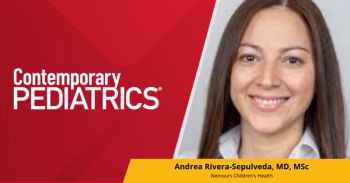
Earlier HPV vaccination associated with completed vaccine series
In a recent review, children with vaccination against human papillomavirus (HPV) initialized at a younger age were more likely to receive their full vaccination series.
Early initiation of human papillomavirus (HPV) vaccination in adolescents is associated with improved HPV vaccine series completion, according to a recent study published in Human Vaccines & Immunotherapeutics.
Vaccination against HPV has up to 98% effectiveness in preventing HPV 16 and HPV 18 infection, protecting individuals from adverse events of infection such as increased risk of oropharyngeal cancer and other cancers. Cervical intraepithelial neoplasia (CIN) 2+ rates decreased in female patients from 164 to 2 per 10,000 after vaccinationin a Cochrane review, and CIN3+ rates from 70 to 0 per 10,000.
Age of vaccination has been found to be vital, with 2 HPV doses in early adolescence giving similar antibody production to 3 doses after age 14 years. The risk of developing cervical precancer and genital warts is also decreased in individuals vaccinated before age 11 years.
HPV vaccination was recommended in female individuals by the CDC in 2006, and male individuals in 2011. The HPV vaccine was added to the Immunization for Adolescents Combination 2 (IMA-2) quality measure in 2017.
While certain guidelines recommend HPV vaccination at age 9 years, others recommend it at age 11 years. Limited data has indicated vaccination initiation at ages 9 or 10 years increases rates of completing the HPV vaccine series.
To determine the effects of starting HPV vaccination before Tdap or meningococcal vaccination, investigators analyzed data from a national US sample. Data was gathered from the Truven Health Analytics MarketScan Commercial Claims Database on children aged 9 in 2015 andenrolled through 2019.
Age at initialization of HPV vaccine series and successful on-time completion data were analyzed, with on-time completion defined as 2 vaccine doses before a patient is aged 13 years with at least 5 months between each dose.
The primary measure of the study was the impact of children receiving the first HPV dose before receiving other adolescent vaccinations. Whether patients received the first HPV dose before, during, or after Tdap vaccination was used to measure the primary outcome, as it is the most common vaccine of the adolescent platform.
As 93% of children receiving Tdap and HPV vaccines in the same visit also receive meningococcal vaccination during this time, the impact of meningococcal vaccination timing was also estimated. Sex, geographic location, and urbanity were measured as demographic variables.
There were 100,857 children included in the analysis, about 51% of which were male. About 42% lived in the South, about 22% in the Midwest, about 20% in the Northeast, and about 15% in the West. Eighty-nine percent lived in urban areas.
One or more HPV vaccination dose was seen in 59.1% of children, Tdap in 87.7%, and meningococcal in 83.9%. Children aged 11 years made up 44% of HPV vaccine initializations, 12 years 33%, and 9 or 10 years 4.4%. Tdap and meningitis vaccinations were seen more often in children who received HPV vaccination.
Female children, children living in urban areas, and those living in the West were more likely to receive HPV vaccination. A significant association was found between receipt of other vaccines and initialization of the HPV vaccine series.
Children who received their initial HPV vaccine dose before receiving their Tdap vaccine were more likely to complete the HPV vaccine series than those who began the HPV vaccine series after Tdap vaccination. The lowest chances of completing the HPV vaccine series were seen in children who did not receive the Tdap vaccine.
Completion of the HPV vaccine series was also more common in children who received vaccination against meningococcal. Outcomes were similar to children who received the Tdap vaccination. Overall, earlier initialization of HPV vaccination increased the chances of completing the vaccine series.
Reference
Kajtezovic S, Morgan JR, Fiascone S, Brandt HM, Perkins RB. Optimizing timing of adolescent vaccines: Impact of initiating HPV vaccination before Tdap or meningococcal vaccination on timely completion of the HPV vaccine series. Hum Vaccin Immunother. 2023;19(1):2175541. doi:10.1080/21645515.2023.2175541
Newsletter
Access practical, evidence-based guidance to support better care for our youngest patients. Join our email list for the latest clinical updates.








